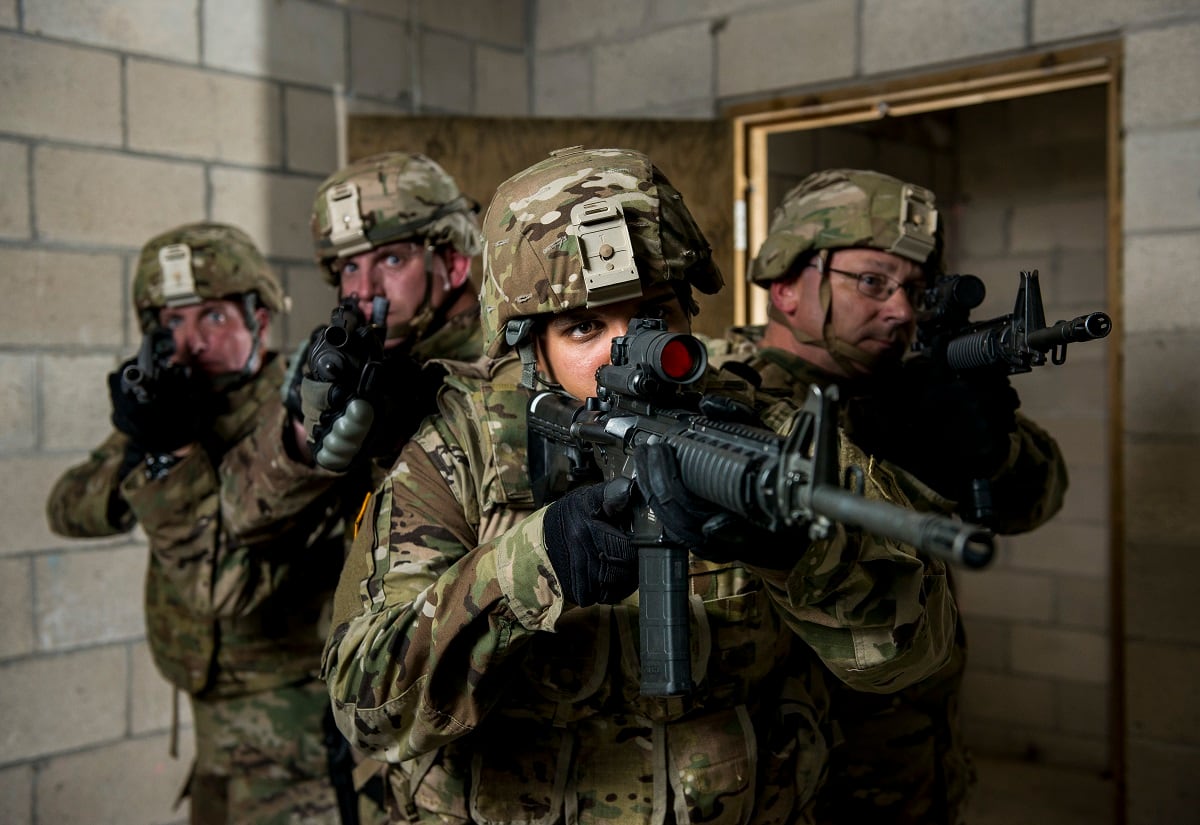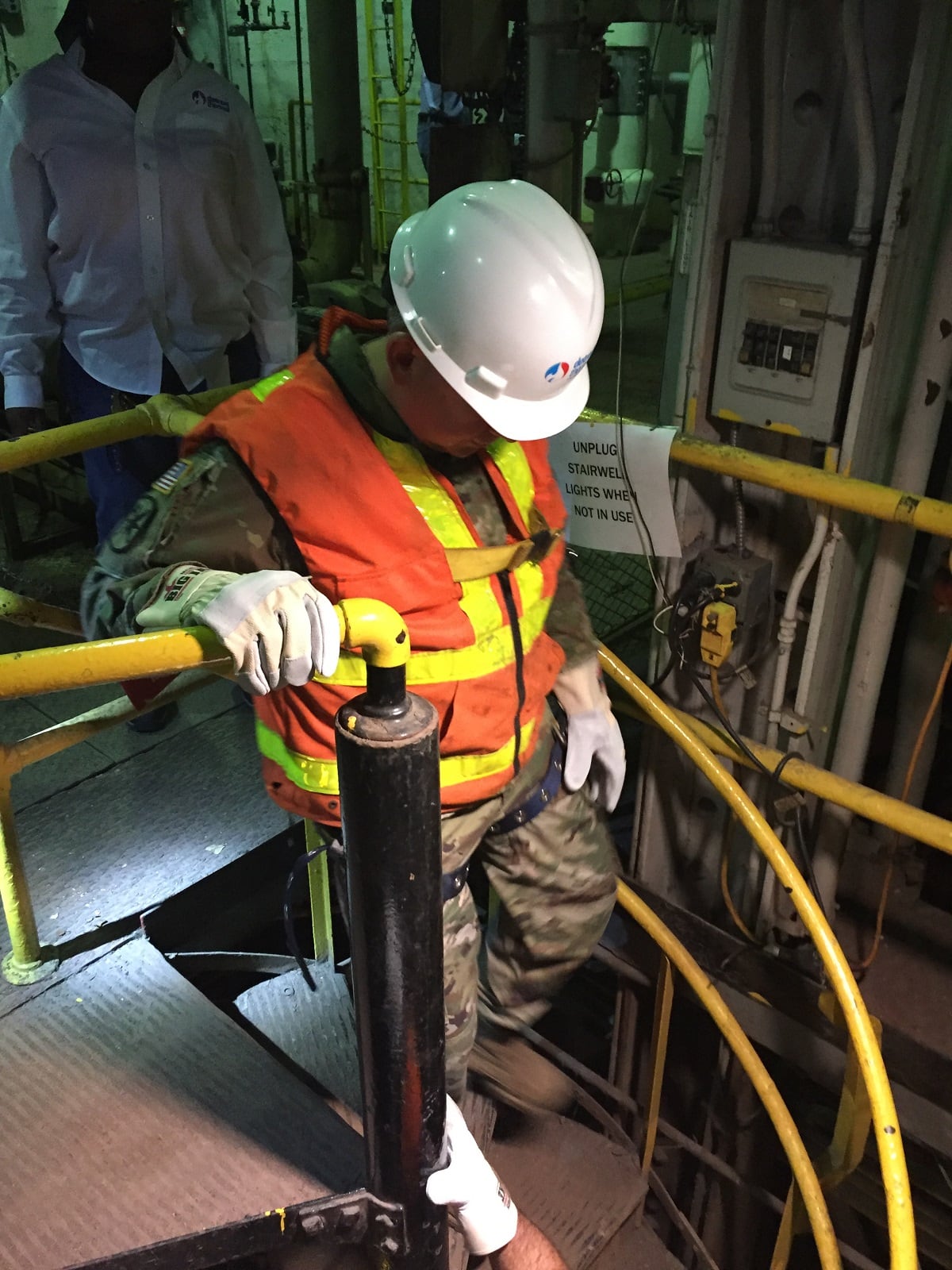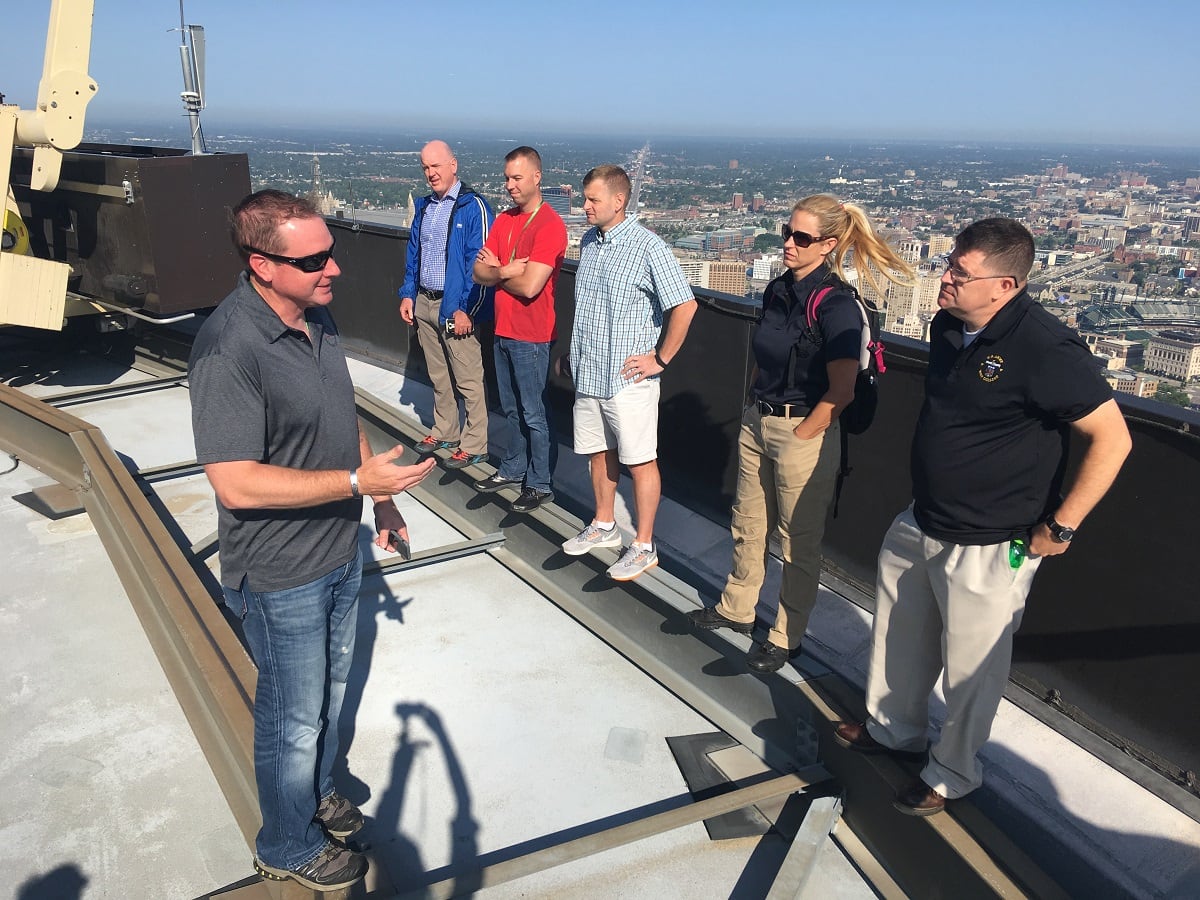As the Army and top leaders look to a potential urban fight in dense, dangerous and confusing terrain, their National Guard counterparts are working the complexities of urban response right now.
Recently, troops with the 46th Military Police Command of the Michigan National Guard began a three-year effort to respond to a chemical, biological, radiological or nuclear attack in Detroit. When they fill that role, soldiers in that unit fall under the command of the active Army, specifically U.S. Army North.
The first stage of the exercise ran for three days, from Aug. 21-23, with a “tabletop exercise” and terrain walk through for leaders and planners to identify who would do what as the Guard units fit into the intricate ways in which many groups coordinate disaster response in urban settings.
RELATED

A key role of Task Force 46 and elements of the MP command is decontaminating those exposed to toxic elements in the CBRN environment. Local agencies, from city to state government and emergency response units, lead their respective areas, but Army assets can hit certain needs at a large scale.
“As you go, the intent is to fill larger gaps rather than take over,” said Robert Naething, deputy to the commanding general of U.S. Army North, which oversees such Army responses inside the United States.

Task Force 46’s key mission is mass decontamination and urban search and rescue, said Maj. Gen. Michael Stone, commanding general of the 46th MP Command and the task force.
While state and local emergency responders do have some capabilities to decontaminate, they’re somewhat limited to a few hundred people at a time.
A mass emergency CBRN event could produce tens of thousands of casualties, Stone said.
There have been similar training exercises with New York City and units at nearby Fort Hamilton, but the Detroit exercise is of a new type of planning between Army Forces Command and the Guard.
It was born, in part, out of the Army’s renewed focus on dense urban terrains, or urban environments.
It’s about going beyond initial responses and stabilization to adding in local experts, academic researchers and the cyber community, among others, to better flesh out all the varieties of situations units face in the urban terrain, Stone said.
While Guard units faced extreme challenges with urban responses to the 9/11 attacks in 2001 and Hurricane Katrina in 2005, cities have become even more interconnected and complex since those events of more than a decade ago.
For that reason, Guard units try to train in the cities they’re designated to help in such situations, rather than rely solely on training centers.
Being able to work with the people you might need in an actual environment and in the actual city where a disaster could take place means better coordination in extreme circumstances.
After this year’s walk through, the unit will meet in the spring for a command post exercise and culminate with a full field exercise with the entire mission command running through real-world type scenarios in mid-2020.
But the exercise doesn’t end there, nor does it end with Detroit, Stone said.

There are ongoing efforts to partner with cities such as Atlanta, Chicago, Phoenix and Cleveland in the coming years so that command groups from the various Guard units and Army North can build out their plans and better coordinate with the local contacts in each area.
That’s an area where the Guard has had experience, Stone said. But with this new event, they’re bringing in not only the working agencies but experts in academia and industry who study disaster related problems.
But, since its inside the U.S., the chain of command is somewhat different than in war time scenarios.
“We’re never in charge, we’re always in support,” Naething said. "Either FEMA or DHS is typically in charge.”
And Stone said that soldiers will have to adapt beyond their normal training center rotations. Instead of chow halls and flushing toilets, they’ll be put into areas without power, water and food and must bring what they need or figure out alternatives, just like in a real-world scenario.
“We’ll have to figure out mobile kitchens to feed our soldiers,” Stone said. “We’re going to have terrain and distance problems, communications problems. We’ll be expeditionary, sleeping on the ground.”
Todd South has written about crime, courts, government and the military for multiple publications since 2004 and was named a 2014 Pulitzer finalist for a co-written project on witness intimidation. Todd is a Marine veteran of the Iraq War.




